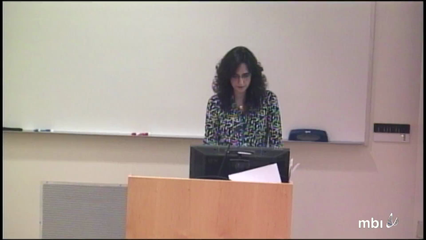MBI Videos
Marcia Castro
-
 Marcia Castro
Marcia CastroThe modern era of Amazon frontier expansion in Brazil witnessed the introduction of large-scale colonization projects focused on agriculture and wide-ranging human settlement, as well as the construction of infrastructure, such as roads and dams. These initiatives led to massive human migration, substantial environmental transformation, and severe malaria transmission. Interactions between development efforts, agricultural colonization, environment and health, at given levels of socioeconomic conditions, are very complex and demand a multidisciplinary analysis to serve as the basis for rational and successful policies. The talk will focus on a specific settlement project, and present a spatially explicit methodological approach that combined spatial analysis, geostatistical tools, and fuzzy sets, in a multidisciplinary way, in order to identify the most important factors impacting transmission. Results revealed that during the early stages of frontier settlement transmission was mainly driven by environmental risks, consequential to ecosystem transformations that promote larval habitats of Anopheles darlingi. With the advance of forest clearance and the establishment of agriculture, ranching, and urban development, malaria transmission was substantially reduced, and risks of new infection were largely driven by human behavioral factors.
